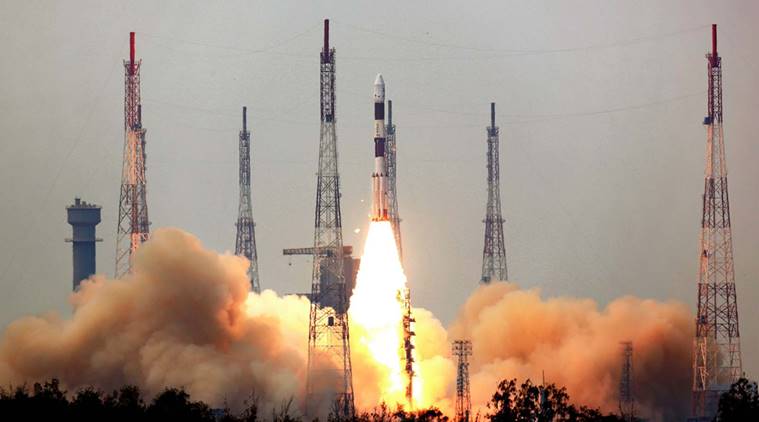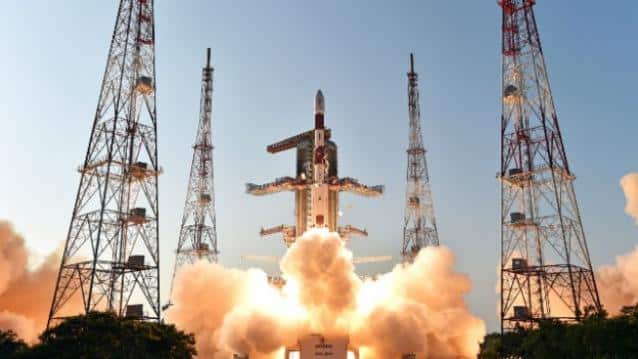ISRO has launched their PSLV (Polar Satellite Launch Vehicle) rocket with weather satellite SCATSAT-1 successfully from Satish Dhawan Space Centre located at Sriharikota, Andhra Pradesh. ISRO is undergoing its second phase of the mission. Satellites will be put into their respective orbits at around 11.25 AM to 11.28AM.
This launch included seven satellites, in which five are foreign satellites: three from Algeria (Alsat-1B 103 kg, Alsat-2B 117kg, Alsat-1N 7 kg), and one each from Canada (NLS-19, 8 kg) and US (Pathfinder-44 kg) and two others were from India: Pratham (10kg) built by Indian Institute of Technology-Bombay (IIT-B) and Pisat (5.25 kg) from PES University, Bengaluru.
The IIT-B’s satellite Pratham’s mission objective is to estimate the total electron count with a resolution of 1KM x 1KM location grid while Pisat from PES University and its consortium is a nano satellite for remote sensing applications.
SCATSAT-1 was a follow up work from OCEANSAT-2. SCATSAT-1 is meant for ocean and weather studies. Objective of SACTSAT-1 is to provide data quality for Climate Data Records and facilitating routine meteorological applications. ISRO said, SCATSAT-1′s scatterometer similar to OCEANSAT-2, which will provide wind vector data products for weather forecasting, cyclone detection and tracking services to the users. The mission life of the satellite is five years.
After the launch, Prime Minister Narendra Modi congratulated Indian space scientists for successful launch. Saying,
Moment of immense joy & pride for India. Congratulations to @isro on successful launch of PSLV-C35/SCATSAT-1 & 7 co-passenger satellites.
— Narendra Modi (@narendramodi) September 26, 2016
Our space scientists keep scripting history. Their innovative zeal has touched the lives of 125 crore Indians & made India proud worldwide.
— Narendra Modi (@narendramodi) September 26, 2016
Antrix Corporation- commercial arm of Indian Space Research Organisation (ISRO) has successfully launched 68 foreign satellites missions. And making it to 100 foreign will not be a major challenging for them especially when there are at the peak of excellency.
Congratulate them for their achievements @ISRO. Go on.
What do you think about ISRO in the coming years?





